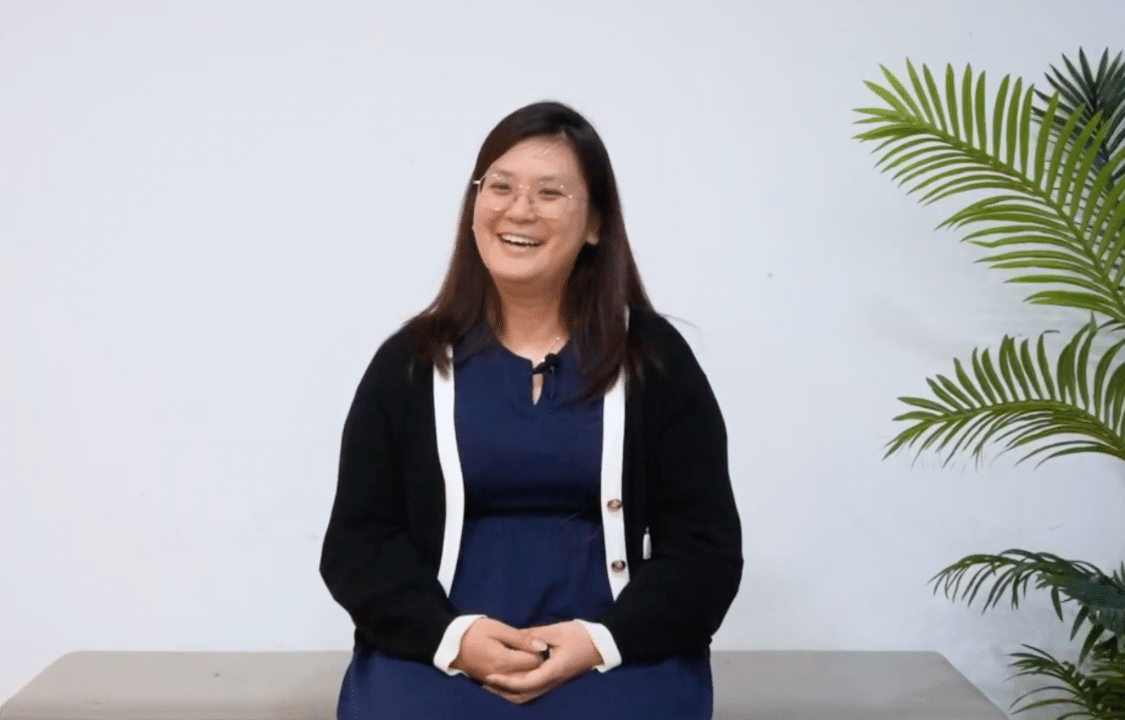‘Filial parenting’ refers to a parenting style of almost unconditional care and devotion, albeit with expectations of meeting parents’ demands and providing reciprocal care when the parents are of old age.
While this has similarities to helicopter parenting, where parents are overly attentive of their children’s upbringing, filial parenting is a distinct concept and offers us a fresh perspective on highly involved parenting behaviour and its implications.
Like helicopter parenting, there are advantages and disadvantages that are worth paying attention to. Research on helicopter parenting has shown that it may increase children’s levels of anxiety and depression, reduce their coping skills, and decrease satisfaction and wellbeing (Schiffrin et. al., 2014). With filial parenting, while children may grow to be obedient and proficient, they may also turn out less resilient, less socially competent, and less happy.
In this article, we delve into the concept of filial parenting, and how it may be impacting children’s wellbeing for better or worse. Exploring the repercussions of filial parenting may potentially also help us to provide context for the challenges faced by adult children of filial parents to their wellbeing.
Table of Contents
What is Filial Parenting?
A term coined by The School of Positive Psychology’s Dr Titus Foo Koong Hean, Filial Parenting is characterised by high levels of parental care and attentiveness towards their one or two children (Foo, 2013).
Having fewer children is a distinguishing feature of this parenting style because it means that parents can devote more time, attention, and money to each child. In 2023, Singapore witnessed its fertility rate plummet to a record low of 1.05, a development that underscores the prevailing trend of filial parenting in the country. With fewer children, increasing affluence, availability of information on child rearing, and alongside the cultural emphasis on the traditional Asian virtue of filial piety, parents go all out to ensure their kids have everything they need—from education to nutrition.
However, this care comes with the expectation that children will respect and obey parents’ demands, and implicitly, that children will respond with love and care for parents through their old age. These expectations may be expressed openly and perhaps in combination with a warning, for example “If you don’t do well in the next exams, say goodbye to your Playstation for the rest of the year”, but they can also be subtly hinted at in conversation: “When your mummy and daddy are old, we hope you will know how to take care of us.”
In order to prepare children to meet the parents’ high expectation, filial parents go to great lengths to ensure their children’s success, often orchestrating their schedules with various enrichment activities and strategically positioning their children for educational advantage. This may mean that each week, children are shuttled through multiple enrichment classes, such as ballet or piano lessons, sent for tuition to improve academic performance, and even homes moved closer to high-reputation schools to stand greater chances of admission.
The meticulous nurturing of filial parenting aims to prepare children for high achievement, yet it’s crucial to recognise the dual-edged nature of such intensive parenting. On one hand, it cultivates a supportive environment for children’s development; on the other, it may inadvertently strain the child’s independence, and add a high pressure on them to succeed.
While the practical realities of parenthood are complex and each parent does what they can to raise thriving children, the concept of filial parenting provides a useful way to understand the possible repercussions of a high nurturance and high expectation style of parenting. In the next section, we explore the impact filial parenting has on children’s mental, physical, and social wellbeing, as well as children’s sense of meaning and fulfilment (eudaimonic wellbeing). As we explore how children may be affected by the behaviours of filial parenting, it’s crucial to understand that aspects of wellbeing are not isolated but deeply interwoven.
Impact on Mental Wellbeing
At its heart, mental wellbeing is about feeling good about oneself, being able to bounce back from setbacks, and knowing when to reach out for a helping hand. Filial parents pour immense care into nurturing their children’s development, laying a solid foundation for confidence and self-assuredness.
Yet, this same dedication can sometimes veer into the realm of high expectations and intense focus on achievement, placing a heavy burden on young shoulders. This pressure can stir up stress and anxiety, making it tough for kids to develop the coping skills they need to navigate life’s challenges.
Children may feel like they are constantly walking a tightrope, trying not to disappoint those they love most – their parents. They may also find it challenging to assert their independence and may suffer from low self-esteem later in life.
Research has shown that there is a significant culture of self-criticism in Asian societies, and that the main motivator for Asian children’s academic performance is fear of failure rather than the desire to be competent (Yamamoto & Hollaway, 2016). The emphasis on success and the avoidance of failure can leave children less resilient, ill-prepared to face the inevitable setbacks and failures that are part of life’s learning process.
Impact on Physical Wellbeing
Being healthy enables us to sustain our lives, enjoy activities, pursue goals, and find our own versions of fulfilment. Exercise and nutrition have also been shown to intertwine deeply with mental health, whether for adults or children.
Filial parents often ensure children get the best start with healthy habits, from nutritious meals, a regular sleep schedule, to regular physical activity. But, the quest for the ‘best’ can sometimes lead to overscheduled lives, cramping the crucial playtime that teaches kids self-reliance and joy in movement.
Play, which has been defined as ‘self-directed’ and motivated by means more than ends, is a crucial activity for children to learn and develop, especially in terms of understanding how to assess risks, make decisions, and solve problems independently (Gray, 2014). Play is therefore not just fun; it’s an important function of learning risk-taking, decision-making, and problem-solving. Over-structured schedules might rob kids of the chance to engage in play on their terms, potentially stifling their ability to find joy in physical activity for its own sake later in life.
Thus, the balance between providing structured opportunities for physical development and allowing children the freedom to explore and engage in independent play is crucial for fostering a sense of autonomy and encouraging a healthy, active lifestyle.
Impact on Social Wellbeing
Humans are social creatures by nature. Positive, enriching relationships are key to our wellbeing, and social isolation or even a perception of social deficit can be detrimental to our mental health.
When filial parents are present and attentive, children feel secure and supported, providing a strong base that is critical for the development of essential social skills, including cooperation, self-regulation, and social initiative. Secure children are also more likely to internalise social values effectively and engage in positive social interactions with others. As children of filial parents may be sent for multiple types of enrichment classes and activities, this also exposes them to a variety of social situations that help them build their social competence.
However, the protective embrace of filial parenting can sometimes become a cocoon, limiting opportunities for kids to practise social skills freely. The pressure to conform to parental expectations can also stifle children’s authentic self-expression, since they are taught that they must be a certain way in order to be accepted and successful. Later in life, they may find it difficult to initiate and maintain relationships built on a foundation of authenticity and mutual understanding.
Impact on Eudaimonic Welbeing
Eudaimonic wellbeing can be thought of as feeling fulfilled by the pursuit of developing one’s best self through authenticity, meaning, values, and personal growth. It often also involves being concerned with matters beyond the self and immediate moment, towards activities which benefit a wider community.
A 2012 study revealed that parenting styles influence children’s sense of eudaimonia. It found that authoritative parenting, which combines firm expectations with an emphasis on nurturing the child’s individuality, autonomy, and self-regulation, effectively promoted children’s eudaimonia (Huta, 2012).
In the framework of filial parenting, the emphasis on educational attainment and achievement can indeed instil a strong sense of purpose and drive in children. This focus can lead to a deep sense of accomplishment and meaningful success, contributing positively to their eudaimonic wellbeing by fostering a commitment to excellence.
However, when the pursuit of success is driven by parental expectations rather than personal passion, children may struggle to find their own path to happiness and fulfilment. The journey to eudaimonic wellbeing is personal and self-defined, and finding that path requires space to explore, fail, and discover what truly lights one’s fire.
Conclusion
Parental care, attention, and demands lay a crucial foundation for children’s development and overall wellbeing. However, the drive to meet specific achievement standards can sometimes alienate children from their own aspirations and leave them questioning their role in the world. Ultimately, this disconnect can impact their ability to learn resilience, find intrinsic motivation, and experience deeper fulfilment.
The nuanced dance between the supportive elements of filial parenting and its potentially restrictive expectations underscores the importance of a well-rounded approach. Such an approach should nurture children’s wellbeing and encourage their journey towards independence and self-realisation.
Filial parenting creates a deeply interconnected and mutually reliant relationship that has both powerful upsides and downsides, but it is also important to remember that it is a concept that is meant to help us make more informed decisions to empower children to navigate their paths confidently, enriched by a sense of autonomy and the unwavering support of their families.
Want to learn other ways to make psychological concepts come alive? Check out our courses here.
References
Foo, K. H. (2013). Filial Parenting is Not Working! In P. Mandal (Ed.), Proceedings of the International Conference on Managing the Asian Century (pp. 343-351). Singapore: Springer. doi:10.1007/978-981-4560-61-0_39
Gray, P. (2017). What exactly is play, and why is it such a powerful vehicle for learning?. Topics in Language Disorders, 37(3), 217-228.
Huta, V. (2012). Linking peoples’ pursuit of eudaimonia and hedonia with characteristics of their parents: Parenting styles, verbally endorsed values, and role modeling. Journal of Happiness Studies, 13, 47-61.
Yamamoto, Y., & Holloway, S. D. (2010). Parental expectations and children’s academic performance in sociocultural context. Educational Psychology Review, 22, 189-214.
Schiffrin, H. H., Liss, M., Miles-McLean, H., Geary, K. A., Erchull, M. J., & Tashner, T. (2014). Helping or hovering? The effects of helicopter parenting on college students’ well-being. Journal of child and family studies, 23, 548-557.


